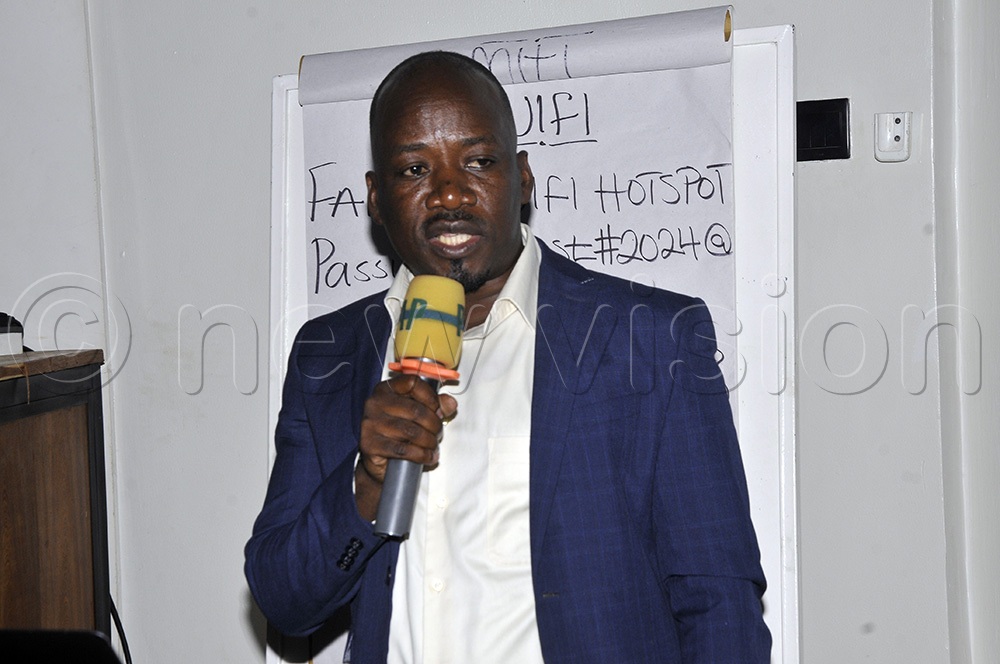Piped water relieves Kamyokya slum communities
Jane Namusisi, a mother of two, said they are very happy that they now access water at sh100 for a jerrycan from sh500, which they were spending daily on one jerrican.
A mother fetches water from a water source in Kamapla. (Credit: Wilfred Sanya)
KAMPALA - Communities in the ghettos of Kamwokya slum in Kampala's Central Division have been provided with piped water by the Water, Sanitation, and Hygiene (WASH) project to help mitigate the spread of communicable diseases.
The slum dwellers can now access piped water at sh100, instead of sh500 per twenty litres jerrycan. Habitat for Humanity under WASH supported the project.
Jane Namusisi, a mother of two, said they are very happy that they now access water at sh100 for a jerrycan from sh500, which they were spending daily on one jerrican.
“That previous water used to be contaminated, and people used to come in large numbers; it would affect some of us who depended on side business for our survival. Today you go to the taps and pay sh100 for a twenty-litre jerrycan, and in a short time you are at your workplace,” she explained.
She said that at the moment, families are free from some diseases like diarrhoea and frequent cough among their children.
Currently, over 7,000 slum dwellers are some of the beneficiaries of the Home Equals Campaign, she said.
The Campaign is a global advocacy for increasing access to equitable housing within informal settlements across Habitat for Humanity International and its affiliates.
In Kampala, the beneficiaries, mainly slum dwellers, were given access to safe drinking water, a project they achieved after a partnership between the National Water and Sewerage Corporation (NWSC) and Habitat for Humanity.
The director, Maanta Consult, Saturo Waalabyeki, said an evaluation exercise was carried out in Kamwokya slum and in Kumi.
Waalabyeki said rural-urban slum dwellers who benefited from piped water were able to mobilise themselves, form saving groups to expand on their incomes by engaging in small income-generating projects, and borrow from their savings groups.
The director, Maanta Consult, Saturo Waalabyeki, said an evaluation exercise was carried out in Kamwokya slum and in Kumi. (Credit: Wilfred Sanya)
In Kumi district, Waalabyeki said women were empowered in land ownership and can own land since they were given certificates of ownership.
“Today, with the legal provision, women who make up 50.47% of the population, own less than 20% of the land.”
The Manager Monitoring, Evaluation, Accountability, and Learning (MEAL) Habitat for Humanity, Aldo Olwoch, urged the needy to enhance affordable housing through supporting advocacy projects.
“We empowered the communities in Kamwokya, and they are able to articulate their issues, especially around WASH, to bearers to engage them. As a result, people were empowered and were able to air their issues,” Olwoch said.
He said that through these initiatives, 33 water points were constructed in Kamwokya slums and in Nakawa Market, toilets were built.
In Kumi district, the project impacted 157 vulnerable families who acquired a certificate of customary ownership as a way of demonstrating to communities that with unity, getting a land title is not as hard as people put it, he asserted.
“We empowered them to appreciate that having a certificate of customary ownership helps them to secure their land to avoid eviction,” he said.
In only two years, about 7000 people in the informal settlement of Kamwokya and over 35,000 people through capacity building and training, he noted.
The campaign aims to support interventions that promote participation, essential basic services and capacity building for land governance and leadership.
The campaign seeks policy changes at the local, national and global levels to increase access to adequate housing in informal settlements.